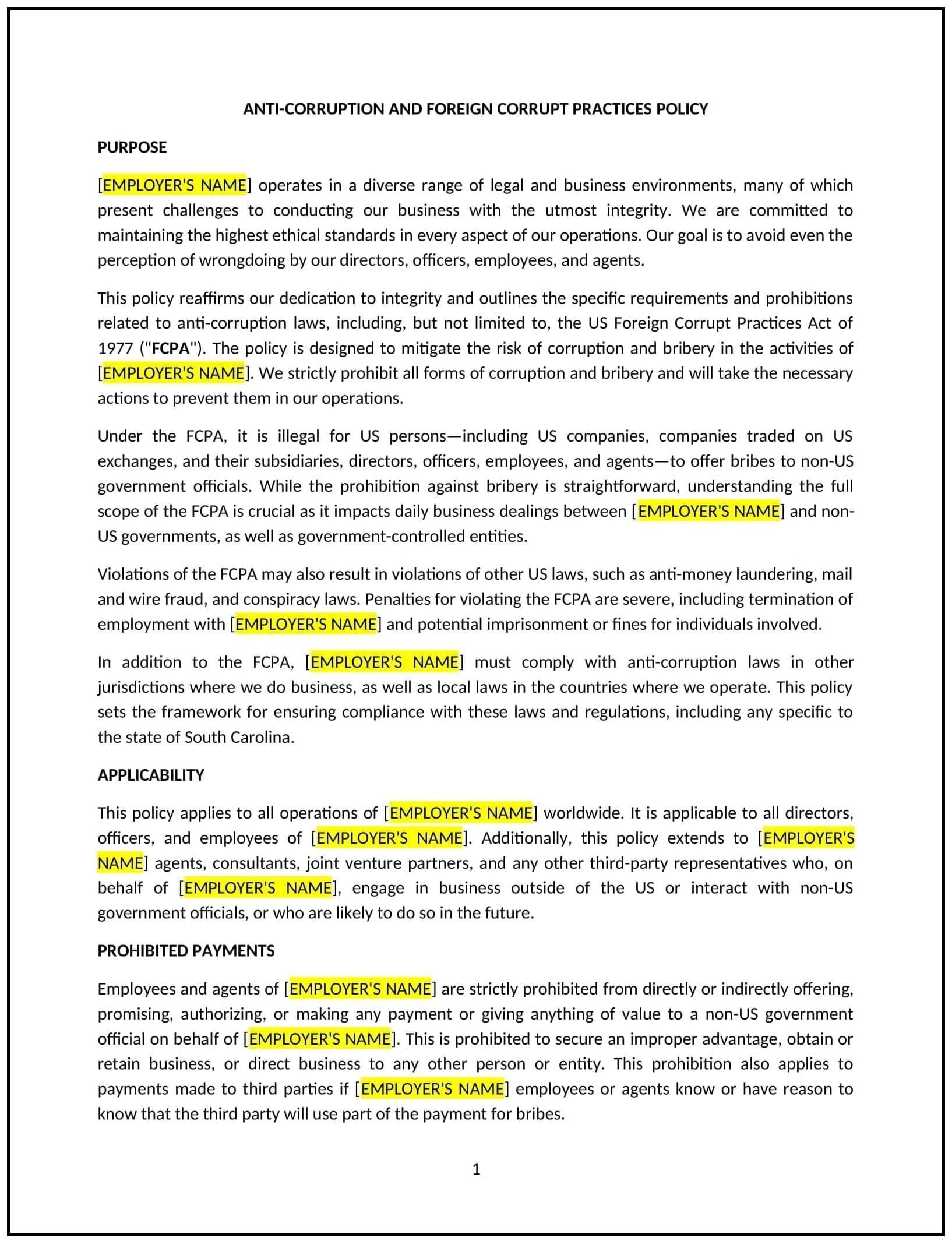Anti-corruption and foreign corrupt practices policy (South Carolina): Free template
Got contracts to review? While you're here for policies, let Cobrief make contract review effortless—start your free review now.

Customize this template for free
Anti-corruption and foreign corrupt practices policy (South Carolina)
This anti-corruption and foreign corrupt practices policy is designed to help South Carolina businesses establish guidelines for preventing bribery, corruption, and violations of the Foreign Corrupt Practices Act (FCPA). It outlines procedures for ethical business practices, due diligence, and reporting potential violations.
By adopting this policy, businesses can promote ethical conduct, reduce legal risks, and align with general best practices for compliance with anti-corruption laws.
How to use this anti-corruption and foreign corrupt practices policy (South Carolina)
- Define prohibited conduct: Specify actions that constitute bribery or corruption, such as offering or accepting improper payments or gifts.
- Establish due diligence procedures: Provide guidelines for vetting third parties, such as vendors, suppliers, and business partners, to ensure they comply with anti-corruption laws.
- Set reporting mechanisms: Outline steps for employees to report potential violations, including anonymous reporting options.
- Address consequences: Explain the disciplinary actions for violating the policy, such as warnings, suspension, or termination.
- Train employees: Educate employees on anti-corruption laws, ethical business practices, and their responsibilities under the policy.
- Conduct audits: Establish a process for regular internal audits to ensure adherence to anti-corruption requirements.
- Review and update: Assess the policy annually to ensure it aligns with evolving legal standards and business needs.
Benefits of using this anti-corruption and foreign corrupt practices policy (South Carolina)
This policy offers several advantages for South Carolina businesses:
- Promotes ethical conduct: Establishes clear guidelines for preventing bribery and corruption in business dealings.
- Reduces legal risks: Helps businesses avoid violations of the FCPA and other anti-corruption laws, which can result in hefty fines or penalties.
- Aligns with best practices: Demonstrates a commitment to ethical business practices and compliance with federal regulations.
- Enhances reputation: Builds trust with customers, partners, and stakeholders by showing a commitment to integrity.
- Supports international growth: Ensures businesses can expand into global markets while adhering to anti-corruption laws.
Tips for using this anti-corruption and foreign corrupt practices policy (South Carolina)
- Communicate the policy: Share the policy with employees and include it in the employee handbook.
- Provide training: Educate employees on anti-corruption laws, ethical business practices, and their responsibilities under the policy.
- Monitor compliance: Regularly review business transactions and third-party relationships to ensure adherence to the policy.
- Address issues promptly: Take corrective action if violations or discrepancies are identified.
- Update regularly: Review the policy annually to ensure it aligns with evolving legal standards and business needs.